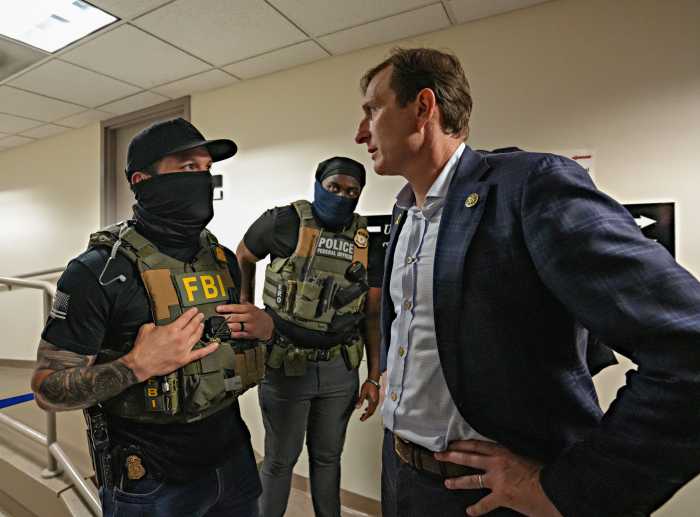Weeks of bickering and disputes culminated last Sunday as a bitterly divided Board of Education voted to support Harold Levy as the new interim schools chancellor. The highly debated 4 to 3 vote directly bypassed the mayor’s handpicked nominee, former Metropolitan Transportation Authority chief Robert Kiley, lending more fuel to the simmering fire between City Hall and the Board of Education.
And once again, at the center of much of the controversy, is Queens board member Terri Thomson.
As has become common practice in recent months, the Queens representative provided the crucial swing vote to elect Levy. However, in a break from recent events, including the ousting of former schools chancellor Rudy Crew, Thomson sided against Giuliani.
Votes against Levy came from mayoral appointees Ninfa Segarra and Irene Impellizzei, along with Giuliani ally Jerry Cammarata from Staten Island. Following the split decision, Segarra accused Thomson of having a direct conflict of interest, because like Levy, she works for Citigroup. The appointee then said she will officially ask the city attorneys to investigate the matter.
In fact, Thomson and Levy do not work together in the corporation, which has 25,000 employees, nor do they report to one another. A Board of Education attorney has already given an opinion that no conflict of interest exists. For his part, Levy has said that if appointed he will take a leave of absence from Citigroup.
However, Levy’s road to Livingston Street may be paved with a few speedbumps if the mayor has anything to say about things. "He’s not the chancellor," said the mayor. "This was not the vote on the chancellor, this was a vote to seek a waiver from the commission of education."
The final recommendation will be left to state education commissioner Richard Mills and his panel of educators, business people, and city residents because Levy lacks the the educational degrees and experience required by state law to become chancellor.
Vowing to fight the appointment of the life-long Democrat, the Republican mayor charged that he "lacks not only the education experience required by law, but the administrative and management experience required by common sense. The only reason for this choice is the worst kind of politics, instead of the best interests of the children."
If Mills rejects Levy’s candidacy, although early reports do not indicate that he will, the search for an interim chancellor would begin all over again. Giuliani has charged that it would be another conflict of interest if Mills, who was hired by the state Board of Regents, granted an exemption to Levy, a Regent since 1997.
Despite the continuing dispute, the Board has indicated that they expect to have a permanent replacement in office by late spring.
Following Thomson’s vote, Cammarata blasted her for what he described as her turnaround of alliances. "A swing vote today has crushed the integrity of all we have worked for," said the Staten Island board member. "Along comes politics in its most ugly form."
Thomson, who initially proposed Kiley as a candidate, said, "This was a very, very, tough decision for me. I felt that Harold Levy was a stronger candidate, that he has the strong business and management background, as well as the educational background."
Levy, a Wall Street lawyer and a product of the city school system, said his only issue was improving the quality of public education. "Those of us who benefitted from the sweet generosity of our society by its grand institutions such as free, universal, public education are, in my judgement duty bound by moral obligation to respond to the call," said the interim chancellor. "If the commission approves, there will be much work to be done. I will recognize the depth of the challenge and have no political or social agenda. My goal is to focus on improving learning for students."
Levy earned a reputation for tackling school reform in 1995, when he chaired a city commission that investigated the decay of many decrepit school buildings. The Commission on School Facilities and Maintenance Reform warned at the time that the conditions inside the public schools were life threatening and needed immediate change.
Levy’s surprise ascension to the top of the public school system did not come unassisted. Assembly Speaker Sheldon Silver, considered one of the most powerful Democrats in the city, began a lobbying drive to elect Levy less than 24 hours prior to the vote. Silver said that it was the mayor’s actions and pressure tactics that forced him to intervene. "It is unfortunate the mayor couldn’t set aside his political aspirations for the benefit of the school children," said Silver.

































